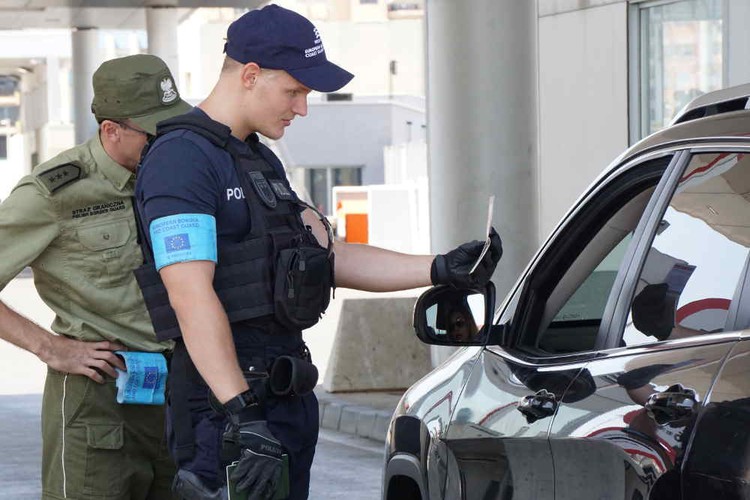With EU Member States reporting thousands of cases of document fraud every year, this crime remains one of the biggest challenges for European border guards. Frontex, the European Border and Coast Guard Agency, has been active in assisting EU Member States to track down document fraud. Earlier this year it established the Centre of Excellence for Combatting Document Fraud to fulfil the agency’s expanded role in combatting cross border crime.
Document fraud is often an essential element of other criminal activities, such as smuggling of drugs, firearms, stolen vehicles, trafficking in human beings and migrant smuggling. Fraudulent documents have also been used by people involved in terrorist attacks in Europe in recent years.
Most document fraud cases are detected at airports. The largest number of travellers with fraudulent documents last year came from Turkish and Senegalese international airports. At the EU’s land border, most fraudulent documents are reported at the Polish-Ukrainian land border.
A revision of the Schengen Borders Code entered into force in April 2017, requiring all persons crossing the external borders to be checked against national and European databases containing information on stolen, lost or invalid travel documents, or persons suspected of involvement in cross-border crime.
Last year, there were 6 700 fraudulent documents reported by Member States on entry into the Schengen area, the lowest number since 2013, despite the increasing passenger flow. At the same time, Frontex observed an increase in the number of fraudulent documents involving mostly migrants departing Greece, where they have originally arrived, heading to other EU Member States.
For years Frontex has deployed document fraud experts in joint operations at the EU external borders and supported the process of the identification and registration of migrants in hotspots. In operations run by Frontex, hundreds of fraudulent documents are detected every year.
This expertise is becoming increasingly important because of the growing sophistication of criminal groups that resort to document fraud. With documents becoming ever more difficult to forge because of state-of-the-art security features, such complex laser perforations or microchips with photos and fingerprints, criminals have also upped their game.
New methods include obtaining authentic travel documents under false pretences, using such documents as fake birth or marriage certificates to obtain real documents, or using authentic documents of look-alikes. Both strategies use real documents, thus making it increasingly difficult for law enforcement officers to spot. Some forgers have also began to use advanced counterfeiting techniques to circumvent automated border control.
Highlighting the agency’s enhanced role in combatting cross border crime, this year Frontex launched the Centre of Excellence for Combatting Document Fraud to support Member States and address the threats to EU’s security connected with document fraud.
The Centre’s primary task is to provide support for combatting document fraud in joint operations. Frontex developed a reference manual for border guards containing images of passports, identity cards, and visas, to help them determine whether the document in front of them is genuine.
The Centre of Excellence for Combatting Document Fraud will also contribute to the work of a number of Frontex units, including risk analysis, training, as well as research and innovation. In turn, the Centre will improve the operational response to specific threats observed at the external border based on information from those units.
The Centre started to operate with a core staff working at the agency and more than a dozen document experts from member states who can be deployed to a member state within two working days to assist in emergencies related to document fraud. It also manages a document expert group of 85 experts in document fraud and forensics from the member states, who participate in all document fraud related-projects and activities coordinated by Frontex.
Members of the group can conduct trainings in detecting document fraud in non-EU countries, such as Mali or Niger. They also participate in the development of analytical reports, workshops, and training manuals for Member States together with relevant Frontex units, sharing their expertise in detecting document fraud.
